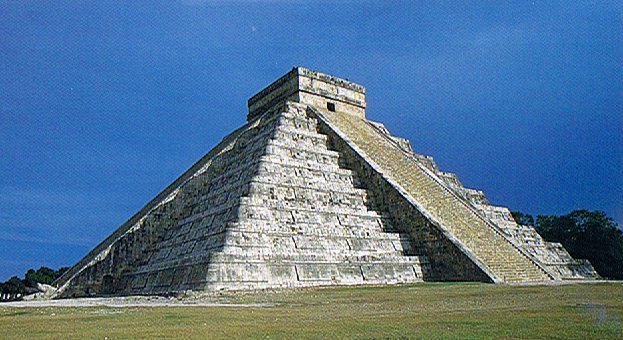32. We need an overview. To begin
with it should be mentioned that the shape of Ga7-16 made me
early decide as an aziom that it pointed at heliacal Antares, *64
precessional days preceding my assumed era for rongorongo.
The straight form of the same creature in Ga1-4 should then
correspond to Aldebaran:
 |
*181 |
 |
|
ALDEBARAN (*68)
|
ANTARES (*249)
|
|
MARCH 25 (84) |
SEPT 22 (265) |
|
Vrishabha
(Taurus) + 6 months =
Vrischika
(Scorpius):
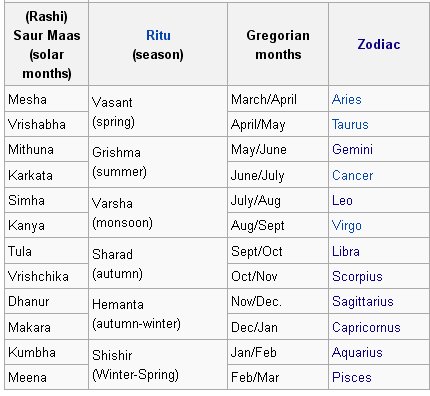 |
Once upon a time the Scales of Libra had been the Claws of the
Scorpion:
The first Libra star in my list is
μ (*223):
|
Egyptian
water ripples |
 |
Phoenician
mēm |
 |
Greek
mu |
Μ (μ) |
... Behind me, towering
almost 100 feet into the
air, was a perfect
ziggurat, the Temple
of
Kukulkan.
Its four stairways had
91 steps each. Taken
together with the top
platform, which counted
as a further step, the
total was 365. This gave
the number of complete
days in a solar year. In
addition, the geometric
design and orientation
of the ancient structure
had been calibrated with
Swiss-watch precision to
achieve an objective as
dramatic as it was
esoteric: on the spring
and autumn equinoxes,
regular as clockwork,
triangular patterns of
light and shadow
combined to create the
illusion of a giant
serpent undulating on
the northern staircase
...
|
 |
 |
 |
 |
|
Ga6-17 (157 = 365
- 208) |
Ga6-18 (2 * 79 = 158) |
Ga6-19 |
Ga6-20 |
|
|
|
PLACE OF THE SUN: |
|
TOLIMAN
ρ Lupi
(221.0),
TOLIMAN (Shoot
from the Vine) =
α Centauri
(221.2), π Bootis (221.8), ζ Bootis (221.9) |
RIJL
AL AWWA (*222)
31 Bootis
(222.0),
YANG MUN (South Gate of the Wolf) = α Lupi
(222.1),
RIJL AL AWWA (Foot of the Barking Dog) =
μ Virginis
(222.5), ο Bootis (222.9) |
IZAR (Girdle) = ε Bootis
(223.0), 109 Virginis,
α Apodis (223.3),
μ Librae
(223.8) |
ZUBEN
ELGENUBI (*224) + MARS (*227 → π)
Nov 3 AD
2023 (80 + 227 = 307 = 304 + 3) |
|
... Counted from 0h at
Sirrah (α
Andromedae) - at her topknot - to the opposite side
of the year AD 2023, viz. to the π date of November
3 (*227) - the planet Mars had moved to the
'Southern Claw' (Zuben Elgenubi) of Libra ... |
|
Oct 28 (301) |
29 |
30 |
31 (277 + 27 =
304) |
|
'Oct 1 |
2 (275) |
3 |
4 (277 = 240 + 23) |
|
"Sept 17 (260) |
18 (9 * 29) |
19 |
20 (263 - 80 =
*183) |
|
AUG 25 (237) |
26 |
27 |
28 (*160 = *224 -
*80) |
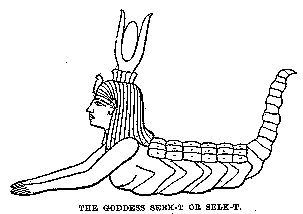
...
Alpha's splendor naturally made
it an object of worship on the Nile, and its first
visible emergence from the sun's rays, in the
morning at the autumnal equinox, has been connected
by Lockyer with the orientation of at least nine
temples in northern Egypt from 3700 B.C. onward. As
such [an] object of worship it seems to have been
known as Serk-t
...
...
Notably there was one foot at Toliman (Rigel
Centauri, α = Serk-t)
and another foot at the Barking Dog (Rijl
al Al Awwā,
μ Virginis) ... |
|
THE NAKSHATRA
VIEW: |
|
μ Arietis (*39.4) |
π Ceti (*40.0) |
BHARANI
May 1 (Beltaine) |
GREAT MOUND
(*42.4) |
|
April 29 |
30 (120 = 302 -
182) |
2 (2 * 61) |
|
'April 2 |
3 |
4 |
5 (95) |
|
"March 19 |
20 (79 = 120 -
41) |
21 (121 - 41 =
80) |
22 |
|
FEBR 24 |
25 (56 = 120 - 64) |
26 |
27 (2 * 29) |
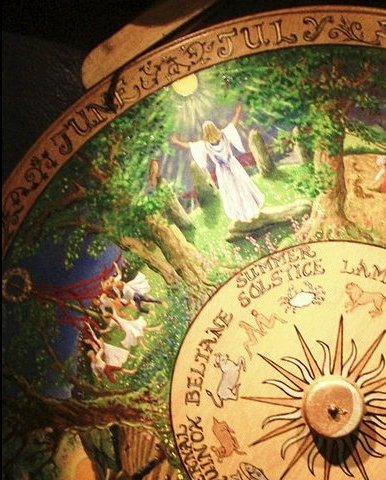 |
And the last Libra star in my list is
θ (*241):
|
Egyptian
nfr |
 |
Phoenician
teth |
 |
Greek
theta |
Θ (θ) |
|
... The form of the letter
θ suggests a
midline ('waist'), although the origin of θ is
the Phoenician tēth which means 'wheel'.
This in turn could have originated from a glyph
named 'good' which in Egypt was nfr ...
...
θ is the last star in the Ara constellation, and
the ancient meaning of this letter was described
as a wheel by the Phoenicians but for the
Egyptian it meant 'good'. When the wheel
of time has come full cycle around and the
upside down fire-altar is in the past the times
ahead should be good (or lucky Sa'ad)
...
According to Wilkinson nefer
originally depicted the throat and heart of a
sheep:

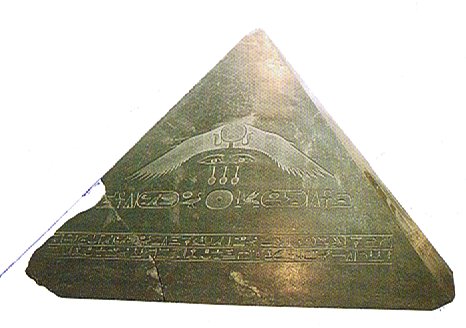 |
 |
 |
 |
 |
|
Ga7-6 (175) |
Ga7-7 |
Ga7-8 (177 =
354 / 2) |
Ga7-9 |
|
PLACE OF THE
SUN: |
|
δ Cor.
Borealis (*239.5)
κ
Serpentis (239.3), δ Cor. Borealis,
TIĀNRŪ = μ
Serpentis
(239.5), χ Lupi, (239.6), ω Serpentis (239.7),
BA
(Pa) = ε Serpentis,
χ Herculis (239.8). κ Cor. Borealis, ρ Serpentis
(239.9) |
λ
Librae (*240.0) + MARS
Nov
25 AD 2023 (329)
λ
Librae (240.0),
β Tr. Austr. (240.3),
κ Tr. Austr.
(240.4),
ρ Scorpii (240.8) |
Iklīl al Jabhah-15 (Crown of the Forehead)
/
Anuradha-17 (Following Rādhā)
/
Room-4 (Hare)
VRISCHIKA
ξ
Lupi, λ Cor. Bor.(241.1),
ZHENG = γ
Serpentis,
θ
Librae
(241.2),
VRISCHIKA = π Scorpii
(241.3), ε Cor. Borealis (241.5), DSCHUBBA
(Front of Forehead) = δ Scorpii
(241.7), η Lupi (241.9) |
ρ Cor.
Borealis (*242.4). ι Cor. Borealis (*242.5)
SCHEDIR
υ
Herculis (242.3),
ρ Cor. Borealis (242.4),
ι Cor. Borealis (242.5),
θ Draconis (242.6), ξ Scorpii (242.7)
|
|
Nov 15 |
16 (320 = 329
- 9) |
17 |
18 |
|
"Oct 5 |
6 (*199 =
*249 - *50) |
7 (280 = 257
+ 23) |
8 (*201) |
|
SEPT 12 (365
- 100) |
13 (256 = 320
- 64) |
14 (*177) |
15 |
|
... In other words, the ancient Druidic religion
based on the oak-cult will be swept away by
Christianity and the door - the god Llyr - will
languish forgotten in the Castle of Arianrhod,
the Corona Borealis. This helps us to
understand the relationship at Rome of Janus and
the White Goddess Cardea who is ... the Goddess
of Hinges who came to Rome from Alba Longa. She
was the hinge on which the year swung - the
ancient Latin, not the Etruscan year - and her
importance as such is recorded in the Latin
adjective cardinalis - as we say in
English 'of cardinal importance - which was also
applied to the four main winds; for winds were
considered as under the sole direction of the
Great Goddess until Classical times ...
...
Early India knew it
[Scorpius] as Āli, ViÁrika, or
Vrouchicam, - in Tamil, Vrishaman;
but later on Varāha Mihira said Kaurpya,
and Al Birūni, Kaurba, both from the
Greek Scorpios. On the Cingalese zodiac it was
Ussika
... Taurus was the
Cingalese Urusaba, the early Hindu
Vrisha, Vrishan, or Vrouchabam,
- in the Tamil tongue, Rishabam; but
subsequently Varāha Mihira gave it as Taouri,
his rendering of Taurus, and Al Birūni, in his
India, as Tāmbiru ...

Vrischika (Scorpius) = Vrishabha
(Taurus) + 6 months. |
|
THE NAKSHATRA VIEW: |
PORRIMA |
ZAURAK (*58) |
*59 |
COR CAROLI |
|
May 17 (137 =
122 + 15) |
18 |
19 |
20 (140) |
|
'April 20
(110 = 95 + 15) |
21 |
22 |
23 |
|
"April 6 (96
= 81 + 15) |
7 |
8 |
9 (99 = 140 -
41) |
|
MARCH 14 (73
= 58 + 15) |
15 (365 + 74
= 439) |
*360 = *177 +
*183 |
17 (*361 → 19
* 19) |
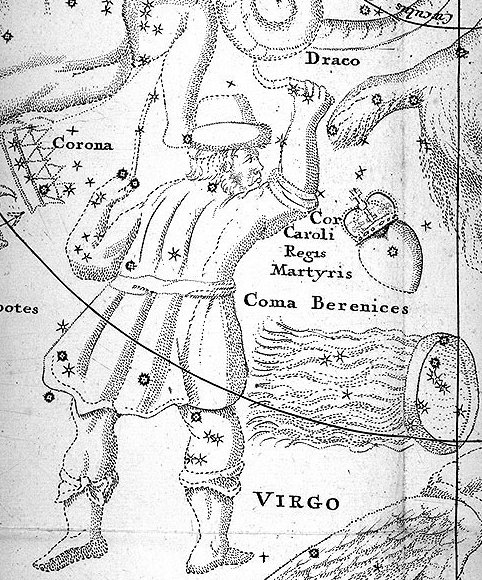 |
From this overview it seems reasonable to find the planet Mars
in AD 2023 not at heliacal Antares (*249) but instead in the day
before the true autumn star Vrischika, π Scorpii, viz. at λ Librae
(*240.0) in the day before
θ Librae:
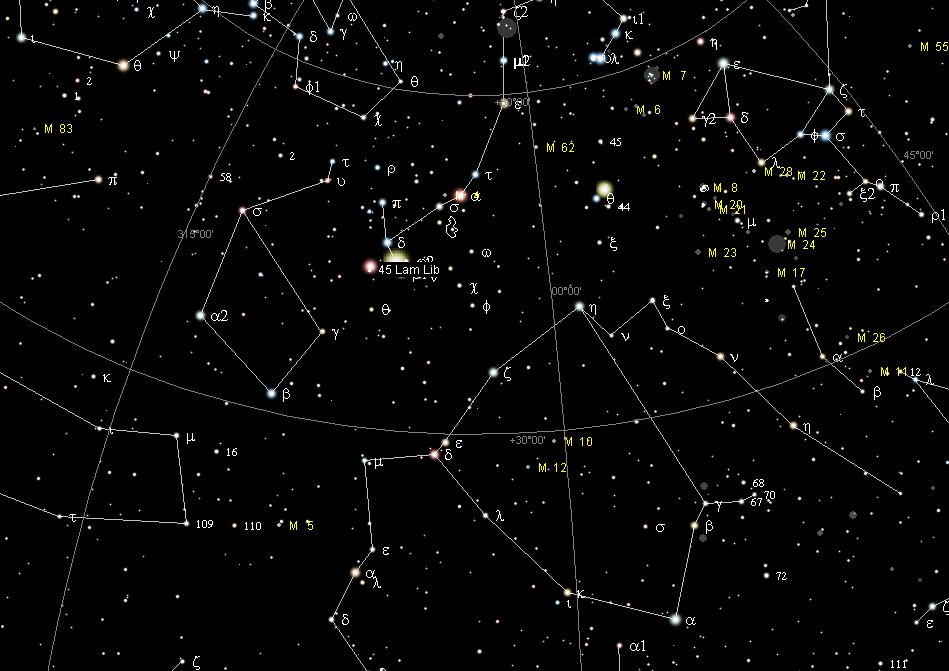
... The stability of the ecliptical
cosmos gives us reason to expect Mars could reach Antares (*249)
around 22 days after November 3 AD 2023 (*227) ...
I should instead have written
'... reason to expect Mars around 22 days after November 3 AD 2023
(*227) will reach November 25 (329) ...'. Because in the G text
and according to my asssumed era for rongorongo heliacal Antares
was located at November 25.
... About Carmenta we know from the historian Dionysus
Periergetis that she gave orcales to Hercules and lived to the
age of 110 years. 110 was a canonical number, the ideal age
which every Egyptian wished to reach and the age at which, for
example, the patriarch Joseph died. The 110 years were made up
of twenty-two Etruscan lustra of five years each; and 110
years composed the 'cycle' taken over from the Etruscans by the
Romans. At the end of each cycle they corrected irregularities
in the solar calendar by intercalation and held Secular Games.
The secret sense of 22 - sacred numbers were never chosen
haphazardly - is that it is the measure of the circumference of
the circle when the diameter is 7. This proportion, now known as
pi, is no longer a religious secret; and is used today
only as a rule-of-thumb formula, the real mathematical value of
pi being a decimal figure which nobody has yet been able
work out because it goes on without ever ending, as 22 / 7 does,
in a neat recurring sequence [3.142857142857 ...]. Seven lustra
add up to thirty-five years, and thirty-five at Rome was the age
at which a man was held to reach his prime and might be elected
Consul. (The same age was fixed upon by a Classically-minded
Convention as the earliest at which an American might be elected
President of the United States.)
...
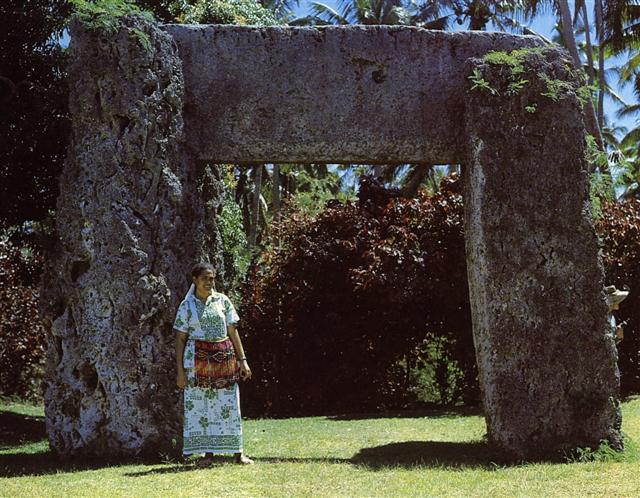
|


